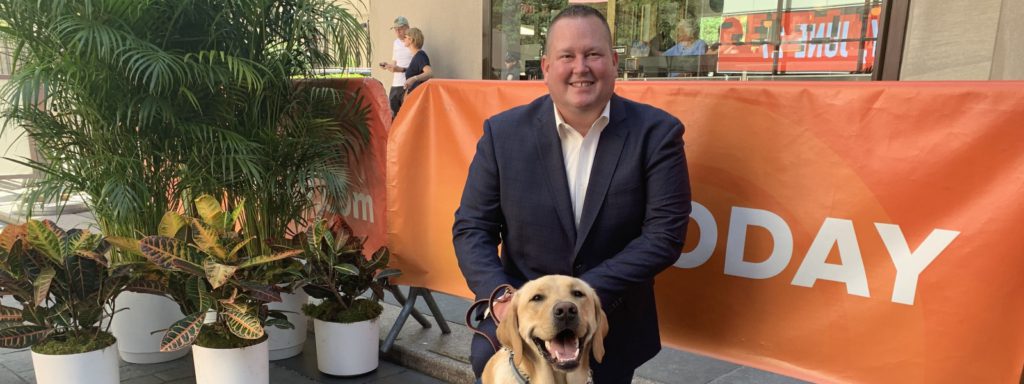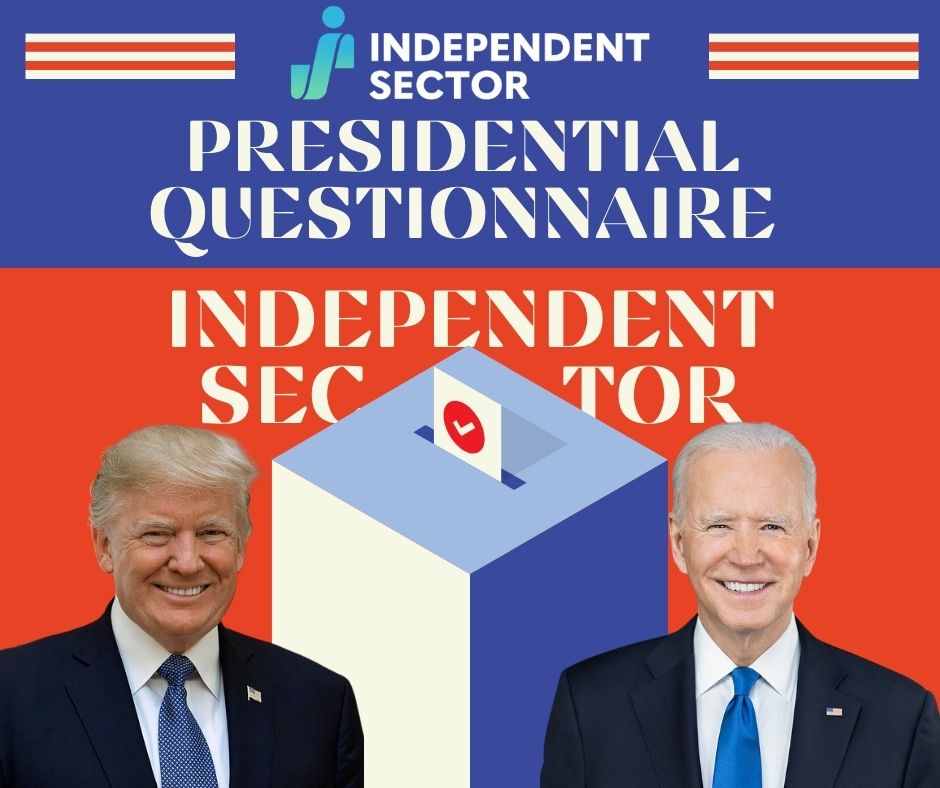IS members represent nonprofits, foundations, and corporations engaged in every kind of charitable endeavor, with missions that reflect the nearly infinite ways of working for the common good. New members Guide Dog Foundation for the Blind and America’s VetDogs are based in Smithtown, NY, but provide their services nationwide. Their missions are to improve the quality of life for people who are blind, have low vision, or have other special needs, and to help those who have served our country honorably live with dignity and independence. The Guide Dog Foundation has trained and placed guide and service dogs for 75 years. America’s VetDogs was formed in 2003 by the Guide Dog Foundation, became its own not-for-profit organization in 2006, and expanded its programs in 2015 to include first responders.
We talked with John Miller, president & CEO of both organizations, about the compassion and creativity their staff and volunteers bring to their work to change lives of people with disabilities and their families.
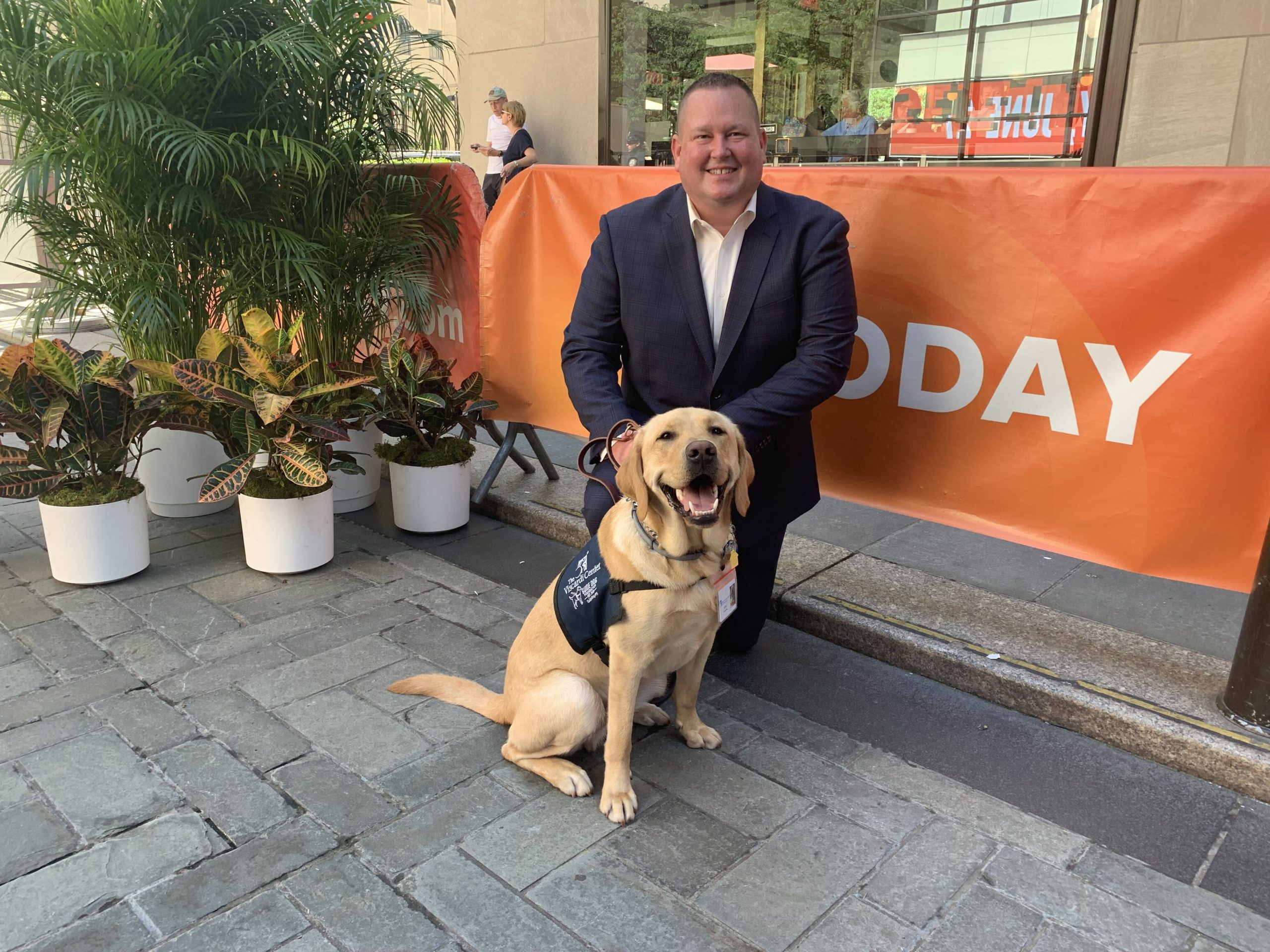 Tell us a little bit about your career path and how you arrived at your present position.
Tell us a little bit about your career path and how you arrived at your present position.
JM: The first eleven years of my career were in local government on Long Island, NY, and I was interested in government and politics. I was recruited to work in higher education at Mercy College, a private college in New York. From there, most notably, I became the chief of staff for the Food Bank For New York City, and through that role worked with the American Red Cross during local NYC disasters. That relationship resulted in my becoming CEO of the Long Island Red Cross through Hurricane Irene and Hurricane Sandy. In 2015, I was chosen from a nationwide pool of candidates to participate in LEAD, the American Red Cross National Leadership Education and Development Program. I was very happy at the Red Cross but had the opportunity to become a national CEO with the Tourette Association of America (TAA). While we were doing great work at TAA, I unexpectedly heard from the recruiting firm we used at the Food Bank about the president and CEO position at the Guide Dog Foundation for the Blind and America’s VetDogs. Once I met the board of directors, staff, and clients, I was pleased to join the organizations in March 2018. This provided me with the opportunity to lead two national organizations.
What does work for your organization’s staff typically look like? Is there a day you remember that was extraordinary?
JM: One of the things that we consistently work really hard on is high-touch public relations, marketing, and media. For instance, Sunny, a Labrador Retriever, joined the TODAY Show in 2018. Sunny’s 16 months of training with a Guide Dog Foundation trainer was featured on the show. Sunny became the first and only facility dog at the Henry Viscardi School at The Viscardi Center, another IS member. 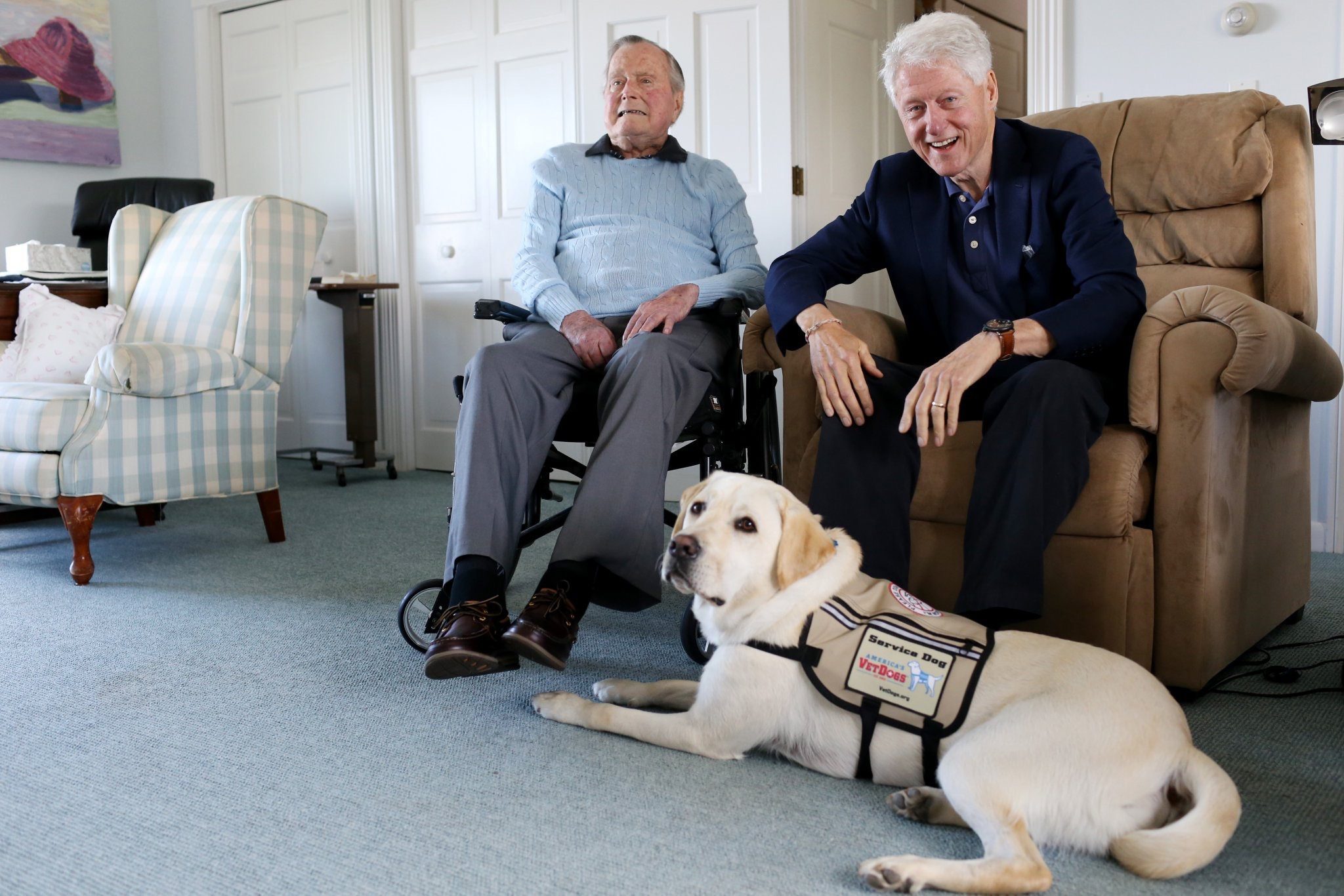
One of our most important relationships was with former President George H.W. Bush, who sadly passed away in November 2018. Service dog Sully was matched with President Bush in June 2018 after the passing of Mrs. Bush. The special friendship shared by the former president and Sully spotlighted as we worked closely with the Bush family and his team. Working with the Bush family and the president’s office to honor the president’s memory was so meaningful for our organization. At the President’s request, we made sure Sully was in good hands at Walter Reed National Military Medical Center, where he continues to help injured veterans and their families. I was very proud of our team’s respect, compassion, and understanding of the gravity of the moment at the time of President Bush’s passing.
Further, I really enjoy the sports partnerships we have developed, especially when we have a chance to interact with the teams. We’ve worked with the New York Islanders, the Washington Capitals, and other professional sports teams. I’m particularly thinking of Spike, the “puppy with a purpose” who is currently with the Atlanta United soccer team. Atlanta United flew their private plane to Long Island to get Spike to bring him to Atlanta!
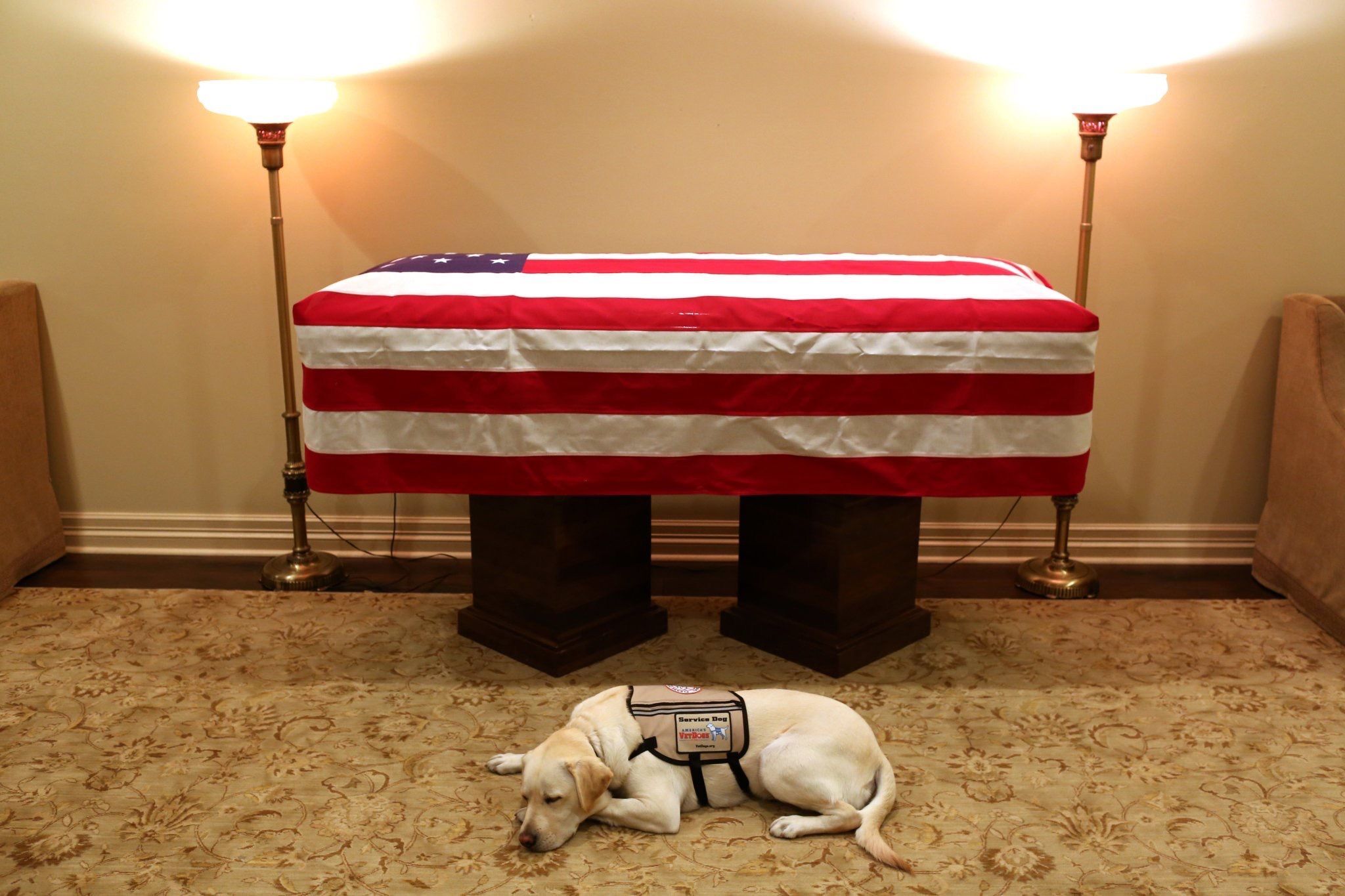 Most importantly, every day is a good day when we can see one of our clients get paired with their dog. You can see an instant change in their personalities.
Most importantly, every day is a good day when we can see one of our clients get paired with their dog. You can see an instant change in their personalities.
What are some of the challenges your organization faces and how have you responded to them?
JM: The biggest challenge we have is meeting record-high demand while currently operating at capacity. This presents the need for us to get creative and think about how we can scale up in a cost-effective way.
Describe some of the programs or services your organization offers.
JM: The Guide Dog Foundation’s guide dog training program has successfully worked with people who are hearing-impaired in addition to being blind, as well as many who have other physical challenges. It costs over $50,000 to breed, raise, train, and place one assistance dog, but all of the Foundation’s services are provided at no charge to the individual, and the Foundation pairs each student with the dog that’s right for them. America’s VetDogs trains and places assistance dogs for veterans and first responders: guide dogs for individuals who are blind or have low vision; service dogs for those with physical disabilities other than blindness; PTSD service dogs to help mitigate the effects of post-traumatic stress disorder; and facility dogs as part of the rehabilitation process in military and VA hospitals.
Beyond the programs and services, we provide, we fundamentally change lives, whether it’s giving somebody mobility, independence, or a friend. Clients and their families are so deeply grateful for the dogs and training we provide that family members have often told us that it’s really giving them their family member back.
What is one of your favorite places to be in your community? 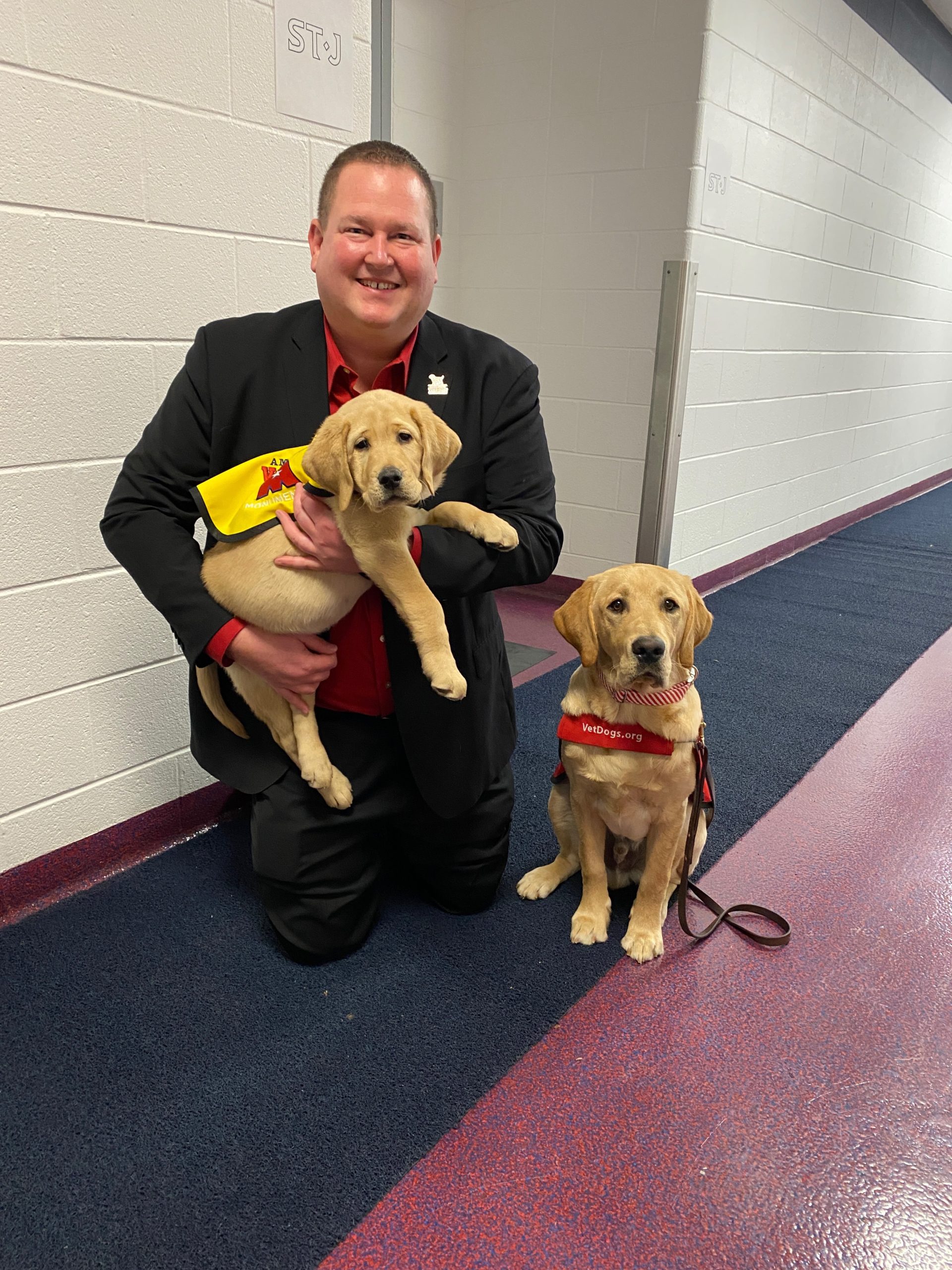
JM: We are nationally based, so in normal times I like to be where the action is – to be there for media- and sports-related opportunities as well as the events we hold in major cities and on Capitol Hill. Personally, my wife and I have two very active boys, and they play travel soccer, so usually we like to be at a field for one of their games.
Is there an unsung hero on your team you’d like to recognize? What makes this person special?
JM: Pam Vitale, our executive administrator. Pam has been with the organization for about 40 years and has a wealth of historical knowledge. Pam has a great passion for this work, independence, and cares so much about the organization’s success.
How is your organization adapting to your work during the COVID-19 crisis?
JM: We have moved as many staff as possible to remote work. We are doing our best to try and train dogs from instructors’ homes. We had about 260 dogs we had to find homes for during this time. Now we are down to about 25 dogs on campus, which is easier to deal with during this challenging time. That is a direct credit to our staff and volunteers.
Learn more about the Guide Dog Foundation and America’s Vet Dogs at www.GuideDog.org and www.VetDogs.org.
Visit Independent Sector’s members page to learn more about our members and the wide spectrum of their missions. Contact Us
